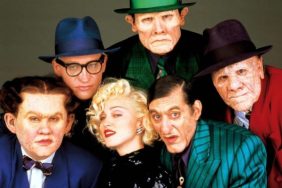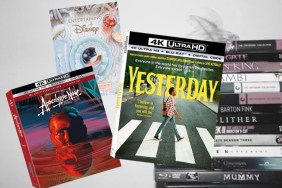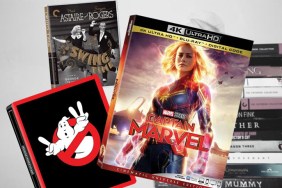It may be impossible to view Chef without a filter, knowing what we know of writer/director Jon Favreau. Originally hailed as a possible wunderkind, falling prey to the demands of filling seats at the cost of his creative integrity, and building himself up again with a lower-budget independent enterprise: that’s the plot of Chef and also arguably the plot of Favreau’s own career. Favreau scripted the indie darling Swingers, and then directed with decreasing quality Iron Man (great), Iron Man 2 (iffy) and Cowboys & Aliens (forgotten), and is now making a bit of a comeback with a charming, thoughtful indie once again.
We’ve seen writer/directors attempt to elicit sympathy for their own bourgeois and egomaniacal plights before. Watch Lady in the Water sometime and see what M. Night Shyamalan “really” thinks of film critics. But Favreau is too sensitive a filmmaker to fall prey to self-indulgence. Whatever parallels Chef may have with his own career, they’re not much of a distraction. They’re the natural result of a filmmaker whose best efforts have long been about heroes who define themselves by their work, be they iron men or elves. Favreau clearly values the act of creation, the camaraderie of collaboration, and being proud of a finished product. That is to say, surely he must, since he wrote an awful lot of dialogue about it.

But ignore for a moment the notion that Chef is largely autobiographical – as indeed most fictional stories are, to one extent or another – and focus on the lovely truth that Chef is also a darling motion picture in a vacuum. Favreau captures the riches-to-rags-to-riches formula neatly and without the sort of distracting judgment that usually comes part and parcel. Chef Carl Casper (played by Favreau himself) is responsible for his success through both diligence and talent, and responsible for his own downfall due to naïveté and complacency. The movie makes no harsh criticism of the people who spur Casper to self-destruct his own career, and makes only the reasonable assessment that, however successful he was, Casper himself had lost track of his true priorities in favor of a comfortable 9-to-5er.
The plot is this: Carl Casper is the head chef at a very nice restaurant. Coerced by his pragmatic boss (Dustin Hoffman) into playing the menu safe for an important food critic, said critic then destroys Casper’s cuisine in a review so colorfully vitriolic that it goes viral. Casper knows he could have done better and lets the critique get to him, finally taking to Twitter with the help of his underappreciated son Percy (Emjay Anthony) and, misunderstanding how social media works, accidentally ignites a flame war that leads to a rematch, and eventually a bitter tirade that also goes viral after the video leaks online.

Forced to reassess his priorities, Carl Casper finally lets his ex-wife (Sofia Vergara) help him buy a food truck. And… that’s it. He buys a food truck. He makes good food. He spends time with his son. He rediscovers why he does what he does in the first place and finally acknowledges the significance of balancing one’s work life with one’s personal life. It’s not Shakespeare, damn it, but it’s a universally positive message that Favreau underplays just enough to present as genuine, and not as the bag of sappy, unwelcome clichés you would normally find in a Tim Allen or Eddie Murphy movie about workaholics who learn a “valuable” lesson about completely sacrificing their personal goals in order to placate their needy kids.
There’s an implicit appreciation for the goodness of people in Favreau’s best work, no matter what they do or how they act. One gets the impression in Chef that the director loves these characters and sympathizes with the motivations behind even their most egregious mistakes. Not that Chef tackles the sorts of mistakes people make that would genuinely ruin their lives – everyone stays out of jail, obviously – but by keeping his story compact and tender he effectively implies that we are all living in a compassionate and fundamentally understandable world. That may be a comforting lie but if nothing else Chef is a comfort food: not terribly filling but delicious all the same.

William Bibbiani is the editor of CraveOnline’s Film Channel and co-host of The B-Movies Podcast. Follow him on Twitter at @WilliamBibbiani.








